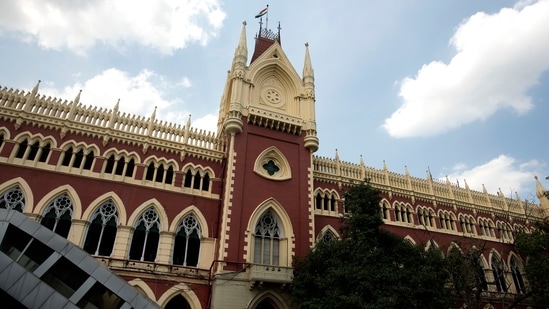Calcutta HC judge recuses from hearing Banerjee’s plea, imposes ₹5 lakh fine
In her petition, Banerjee has alleged voting irregularities in her narrow loss by 1,956 votes to her protégé-turned-adversary Suvendu Adhikari from Nandigram, her first electoral loss in 32 years.
Calcutta high court judge Justice Kausik Chanda on Wednesday recused from hearing West Bengal chief minister Mamata Banerjee’s petition challenging her defeat in the assembly election from Nandigram but imposed a ₹5 lakh fine on the Trinamool Congress chief for the manner in which the recusal was sought.

Justice Chanda also stressed that he did not think that there was any conflict of interest if he had continued hearing the case. “The past association of a judge with a political party by itself cannot form apprehension of bias,” the judge said as he stepped away from Banerjee’s petition which will be placed before another bench.
In her petition, Banerjee has alleged voting irregularities in her narrow loss by 1,956 votes to her protégé-turned-adversary Suvendu Adhikari from Nandigram, her first electoral loss in 32 years. The TMC had demanded a recount shortly after the results were announced in favour of the Bharatiya Janata Party (BJP) candidate but the request was turned down by the Election Commission. Her case was slated to be heard by a single judge bench, Justice Chanda.
Mamata Banerjee and her party asked for transferring the petition to another judge citing “apprehension of bias” since Justice Chanda had, before his elevation to the bench in 2019, represented the BJP and its leaders in court cases and was seen in photographs sharing a dais with BJP leaders including state unit chief Dilip Ghosh.
Justice Chanda was upset that Banerjee did not raise their objections when he first heard the case on June 18 but her party leaders put out messages on social media, setting off what the judge described as a “media trial” with hundreds of tweets demanding that he recuse from the case.
“Such calculative, psychological, and offensive attempts to seek recusal need to be firmly repulsed and a cost of ₹5 lakh is imposed upon the petitioner,” Justice Chanda said in his order on Wednesday. The money will be used to fight Covid-19.
Mamata Banerjee declined to comment on the verdict. “This is a sub judice matter. I will not comment. The lawyers will decide whatever decisions need to be taken,” she said.
TMC leaders hinted that the party might approach the Supreme Court over the ₹5 lakh fine.
“We have full faith in the judiciary and Justice Chanda. But we had some reservations only in this matter because some pictures and old facts have come to the forefront. As far as the decision to move the SC, the party will take a decision soon,” said Kunal Ghosh, TMC spokesperson.
The BJP said it will not comment on a court order or a decision taken by a judge. “We have complete faith in the judiciary, Some political parties may not have faith,” said Jay Prakash Majumdar, BJP’s state vice president.
In his order, Justice Chanda emphasised that he did not agree with Abhishek Manu Singhvi, who appeared for Mamata Banerjee, that there was a conflict of interest since “I have a long, close, personal, professional, pecuniary and ideological relationship” with a political party.
“The argument of Mr. Singhvi takes too sombre a view of the integrity of a judge. When a litigant raises the question of bias against a judge, who has taken the oath to discharge his duties without any fear or favour, the test has to be a real likelihood of bias or real danger of bias. The appearance of impartiality, in such a case, should not be viewed from the perspective of a common man,” he said.
“If a lawyer appears in several cases for a political party, his association with the legal cell of the party or with its leaders is natural. In this country, it is almost impossible not to get a person who may not have said to have some political views. Anyone interested in politics may be said to have an “interest.” Like any other citizen of the country, a judge also exercises his voting rights in favour of a political party, but he lays aside his individual predilection while deciding a case. A lawyer’s mind is trained not to identify himself with his client and at the same time be loyal to his duty towards his client,” Justice Chanda said.
“When a lawyer moves from Bar to Bench, he carries with him the same sense of detachment already in-built in him. Ironically, two leading counsel engaged in the case have well known political identities adverse to the petitioner’s party,” the judge said in his order, referring to Abhishek Manu Singhvi who was a member of the Congress but representing the TMC president along with senior lawyer SN Mookherjee who was from BJP.
“It is preposterous to suggest that a judge having a past association with a political party as a lawyer should not receive a case involving the said political party or any of its members. The past association of a judge with a political party by itself cannot form apprehension of bias,” the order added.






